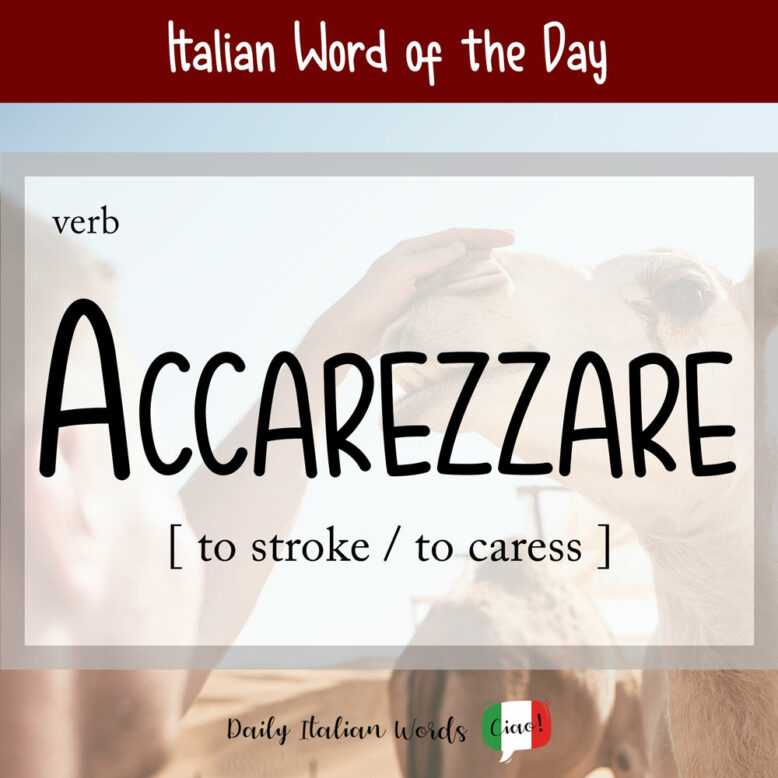The verb accarezzare, which means to stroke, derives from the noun carezza (stroke / caress). Both the Italian carezza and the English caress are based on the Latin word carus meaning dear.

Below is how you would conjugate accarezzare in the present tense:
Io accarezzo
(I stroke)
Tu accarezzi
(You stroke – informal)
Lui accarezza
(He strokes)
Lei accarezza
(She strokes)
Lei accarezza
(You stroke – formal)
Noi accarezziamo
(We stroke)
Voi accarezzate
(You all stroke)
Loro accarezzano
(They stroke)

Some other possible translations for accarezzare in its most literal sense include to caress (when talking about humans) and to pet (when talking about animals).
Ho accarezzato i capelli di mia figlia per farla addormentare.
I stroked / caressed my daughter’s hair to get her to fall asleep.
Non accarezzare il gatto! Ti morderà.
Don’t stroke / pet the cat! He’ll bite you!
Another way of saying accarezzare is fare una carezza or the plural fare (delle) carezze.

In a figurative sense, it is possible to use accarezzare to talk about the gentle way in which natural elements such as wind or water come into contact with other things, particular body parts. For example, you can say that una brezza accarezza i capelli (a breeze brushes one’s hair) or le onde accarezzano i piedi (the waves lap against one’s feet).
Amo camminare sulla spiaggia e sentire le onde che mi accarezzano i piedi.
I love to walk on the beach and feel the waves lap against my feet.

Accarezzare con gli occhi (lit: to caress with one’s eyes) and accarezzare con lo sguardo (lit: to caress with one’s look) are two figurative expressions that mean to look at someone lovingly.
Another possible figurative meaning is to entertain, toy with or cherish an idea, thought or dream.
Ha iniziato ad accarezzare l’idea di tornare a Berlino dopo 10 anni in Italia.
He began to toy with the idea of returning to Berlin after 10 years in Italy.
One final translation is to lovingly refine or to edit in reference to a work of art or writing.
Heather Broster is a graduate with honours in linguistics from the University of Western Ontario. She is an aspiring polyglot, proficient in English and Italian, as well as Japanese, Welsh, and French to varying degrees of fluency. Originally from Toronto, Heather has resided in various countries, notably Italy for a period of six years. Her primary focus lies in the fields of language acquisition, education, and bilingual instruction.


